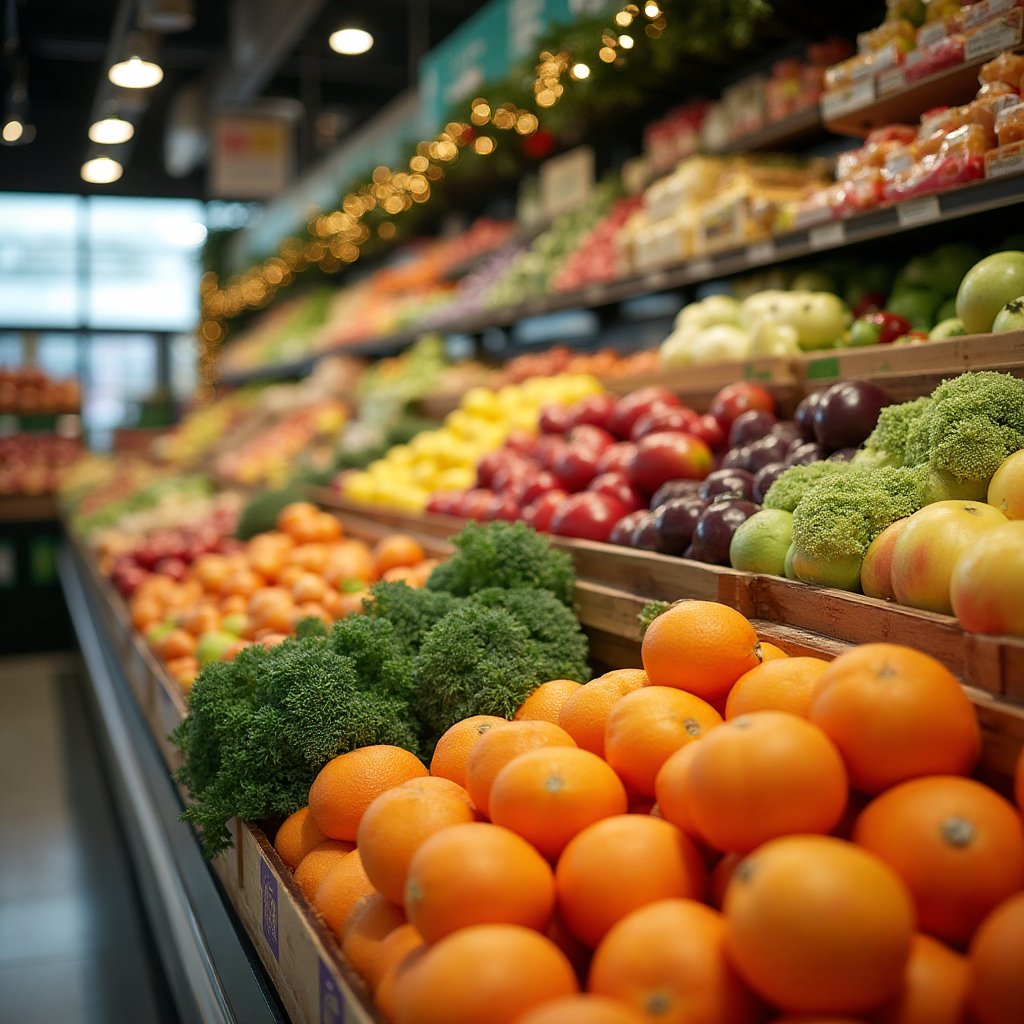The holiday season is here, and with it comes the temptation to indulge in sugary treats, processed snacks, and convenience foods. But what if this year, you could make healthier choices without sacrificing the joy of the season? Dr. Pradip Jamnadas, MD, a renowned cardiologist and advocate for real food, has some game-changing advice. In his three-part video series, he dives deep into the art of smart shopping and the importance of choosing whole, unprocessed foods. This article will break down his insights, add some of my own thoughts, and help you navigate the grocery store like a pro.
Why Real Food Matters
Dr. Jamnadas starts with a simple yet powerful message: buy real food. That means ditching sugar, artificial ingredients, processed foods, and vegetable seed oils. Instead, focus on foods in their natural state, rich in fiber and nutrients. This isn’s just about weight loss—it’s about preventing chronic diseases, improving gut health, and boosting overall well-being. As someone who’s seen the impact of poor dietary choices on heart health, Dr. Jamnadas knows what he’s talking about.
But why is this so important? According to the Mayo Clinic, a diet high in processed foods and sugar is linked to obesity, diabetes, and heart disease. On the flip side, whole foods like fruits, vegetables, and lean proteins can reduce inflammation, improve digestion, and even enhance mental clarity. It’s not just about living longer—it’s about living better.
Breakfast: To Eat or Not to Eat?
Let’s start with breakfast, the meal that’s been dubbed the “most important of the day.” But is it? Dr. Jamnadas challenges this notion, especially if you’re practicing intermittent fasting. If you’re not hungry in the morning, skip it. Your body knows best. But if you do eat breakfast, make it count.
Here’s what to avoid:
- Soda: A 20-ounce soda contains about 10 teaspoons of sugar, which spikes insulin levels and sets you up for a crash later. Dr. Jamnadas calls this an “absolute no-no.”
- Cereal: Most cereals are loaded with sugar and processed carbs. A single serving can contain up to 11 grams of added sugar, leading to insulin spikes and reactive hypoglycemia. Instead, opt for whole foods like eggs or yogurt.
- Juice: Even 100% fruit juice is a sugar bomb. A cup of grape juice, for example, contains the sugar of 30-40 grapes—far more than you’d eat in one sitting. Stick to whole fruits like apples or tangerines, which are packed with fiber and digest more slowly.
What should you eat? Dr. Jamnadas recommends:
- Eggs: A powerhouse of high-quality protein and healthy fats. Don’t skip the yolk—it’s packed with nutrients.
- Yogurt: Choose unsweetened, fermented yogurt for its probiotics, which support gut health. Pair it with blueberries for an antioxidant boost.
- Fiber-rich foods: Aim for 30 grams of fiber daily to feed your gut bacteria and prevent chronic diseases.
The Gut-Brain Connection
One of the most fascinating parts of Dr. Jamnadas’s talk is his emphasis on gut health. Your gut is home to trillions of bacteria that influence everything from digestion to immunity to mental health. When you eat fiber-rich foods, you’re feeding the “good” bacteria that produce short-chain fatty acids like butyrate, which protect your gut lining and reduce inflammation.
On the other hand, a diet high in sugar and processed foods promotes the growth of “bad” bacteria, leading to conditions like leaky gut, obesity, and metabolic syndrome. As Dr. Jamnadas puts it, “Your gut is the source of your health.” This is backed by research from the National Institutes of Health, which highlights the role of gut bacteria in managing weight and preventing disease.
Fructose: The Hidden Culprit
Another key takeaway is the danger of excessive fructose, a type of sugar found in fruit and many processed foods. While fructose in moderation is fine, overconsumption can overwhelm your liver, leading to fatty liver disease, diabetes, and inflammation. Dr. Jamnadas explains that nature designed fructose to help animals store fat for winter, but in our modern world, “winter never comes.” We’re eating fructose year-round, and it’s taking a toll on our health.
To avoid this, limit fruit juice and processed foods, and focus on whole fruits with their natural fiber intact. As Dr. Jamnadas says, “Juice is not a health food.”
Dr. Jamnadas’s Shopping Tips
Here’s a quick guide to shopping smarter this holiday season:
- Read labels: Avoid products with added sugar, artificial ingredients, and processed vegetable oils.
- Choose whole foods: Opt for fruits, vegetables, lean proteins, and fermented foods like yogurt and kefir.
- Prioritize fiber: Aim for 30 grams of fiber daily to support gut health.
- Limit fructose: Stick to whole fruits and avoid fruit juice and processed snacks.
For more tips, check out Dr. Jamnadas’s full video series:
My Take: A Local Perspective
As a Canadian of Haitian origin, I’ve seen firsthand how cultural traditions can influence our eating habits. In Haiti, meals are often centered around whole foods like plantains, beans, and fresh vegetables. But as we’ve adopted more Westernized diets, we’ve also seen a rise in chronic diseases. Dr. Jamnadas’s advice resonates with me because it’s a call to return to our roots—to eat the way our ancestors did, with an emphasis on real, unprocessed foods.
This holiday season, I’m challenging myself to shop smarter and cook more meals at home. It’s not just about avoiding junk food—it’s about celebrating the flavors and nutrients that real food brings to the table. And if you’re looking for inspiration, I highly recommend checking out some of the healthy cookbooks on Amazon to get started.
Final Thoughts
Dr. Pradip Jamnadas, MD, has given us a roadmap to healthier eating, but it’s up to us to take the first step. This holiday season, let’s make choices that nourish our bodies and support our long-term health. Remember, it’s not about perfection—it’s about progress. Start small, and over time, these changes will add up.
What’s one change you’ll make to your shopping habits this year? Share your thoughts in the comments below, and don’t forget to join the iNthacity community for more tips and insights. Together, we can build a healthier, happier future.
Disclaimer: The information in this article is for educational purposes only and is not a substitute for professional medical advice, diagnosis, or treatment. Always consult with a healthcare provider before making any changes to your diet or lifestyle.
Wait! There's more...check out our gripping short story that continues the journey: The Artifact of the Eclipse
Disclaimer: This article may contain affiliate links. If you click on these links and make a purchase, we may receive a commission at no additional cost to you. Our recommendations and reviews are always independent and objective, aiming to provide you with the best information and resources.
Get Exclusive Stories, Photos, Art & Offers - Subscribe Today!


























Post Comment
You must be logged in to post a comment.